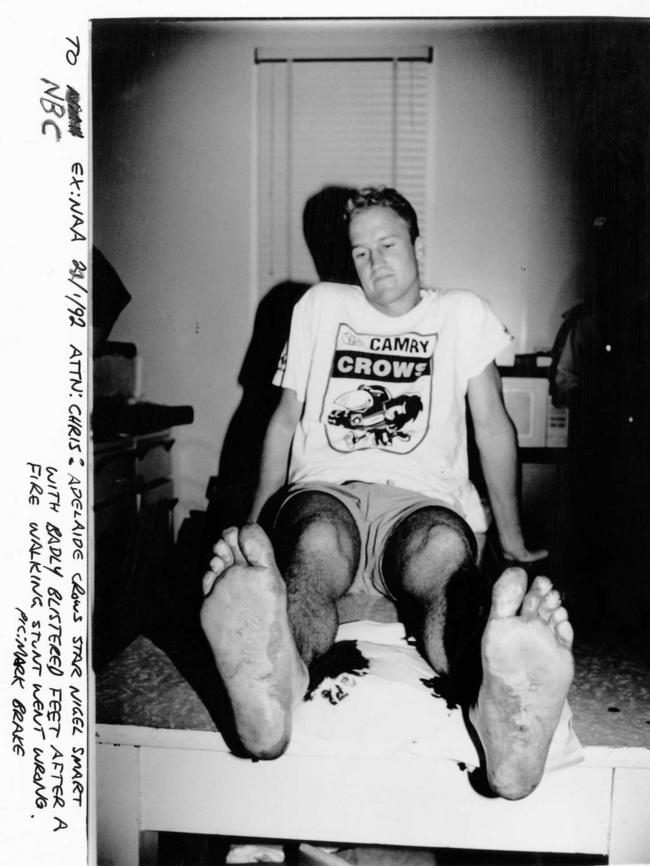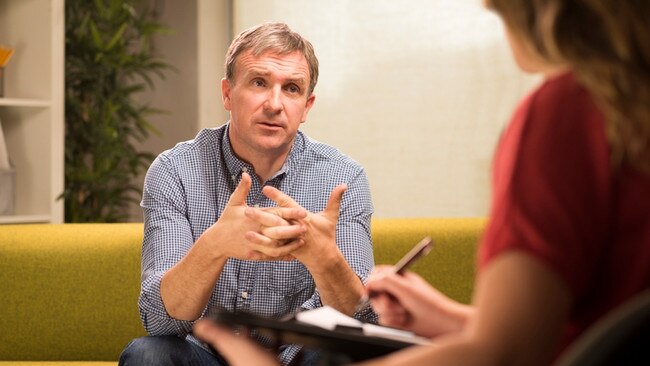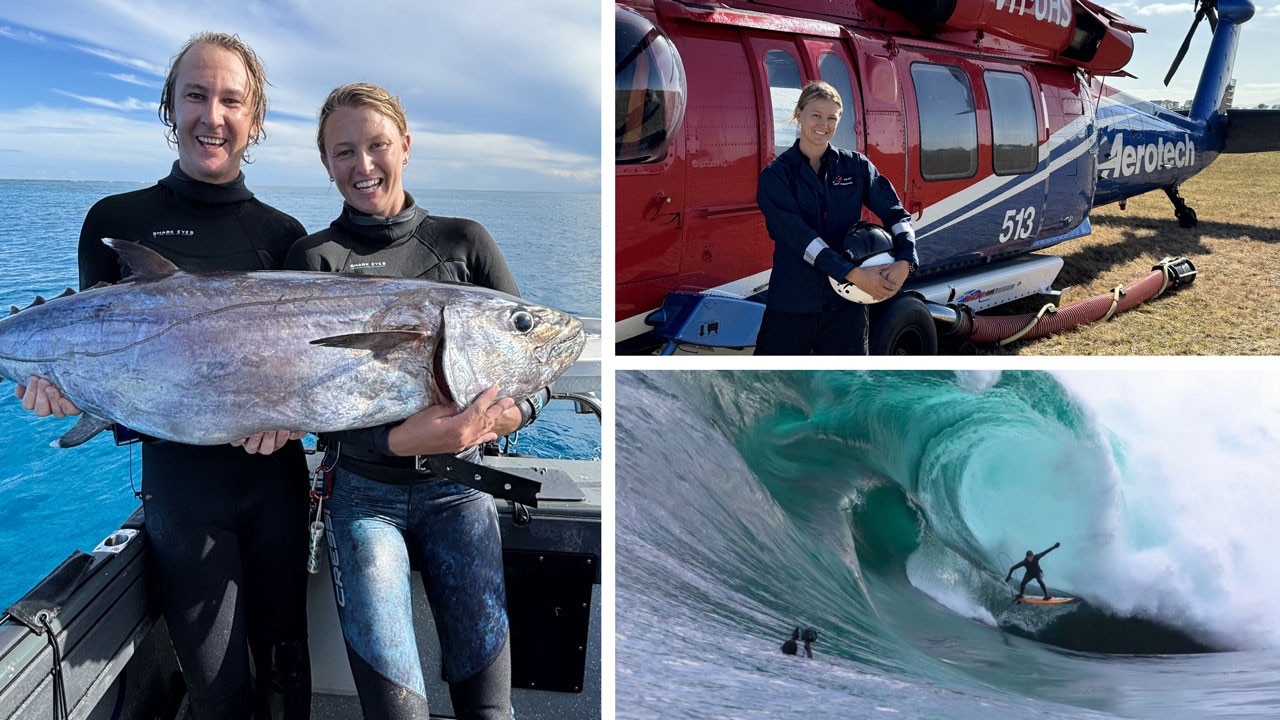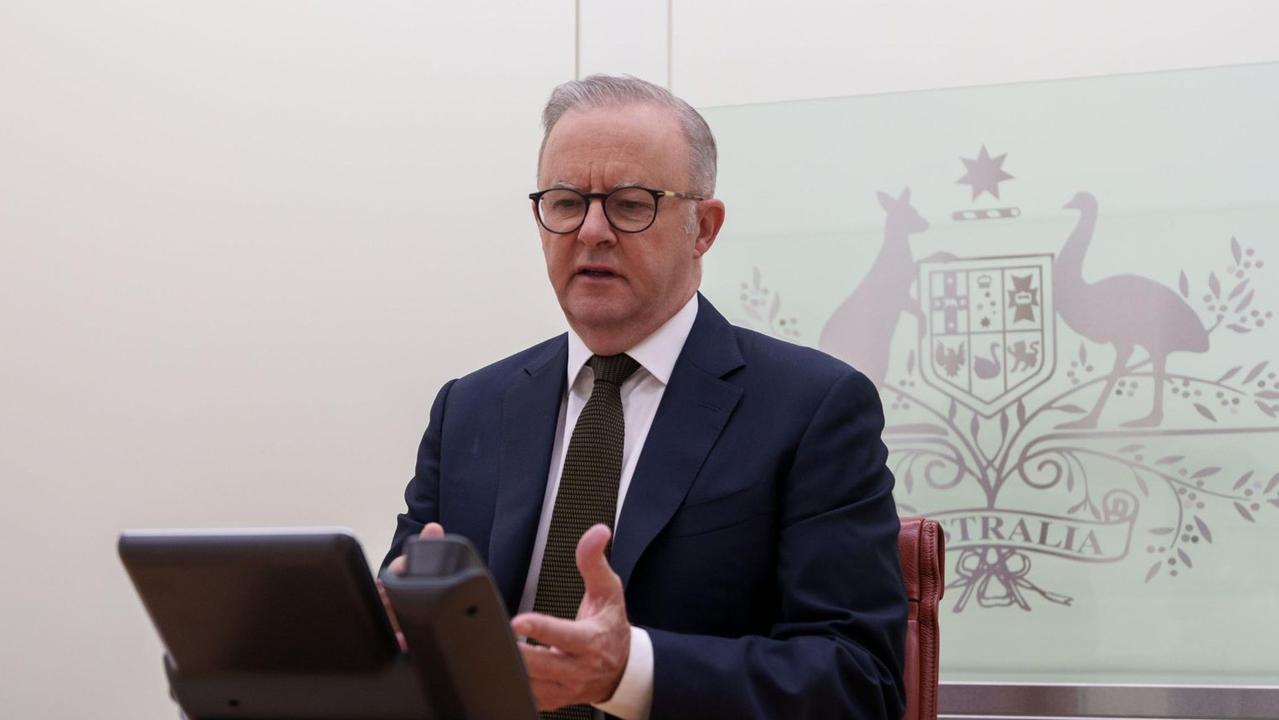Emily Olle: The Crows saga should make us think about what ‘life coaches’ really offer
From hot coals to commando drills, “resilience training” is nothing new. But when it comes to mental health, it’s time to leave life coaching to the experts, writes Emily Olle.

Opinion
Don't miss out on the headlines from Opinion. Followed categories will be added to My News.
Much has been said about the Adelaide Crows’ infamous pre-season camp in past weeks, following Eddie Betts’ revelations that he felt “psychologically and culturally unsafe” on the ill-fated Gold Coast trip.
According to Betts and former Crow Josh Jenkins, players were asked to disclose their trauma, which was then used against them in a “harness ritual” involving their teammates.
Jenkins claimed the club doctor was left in the dark until after the camp’s completion, after which he wrote a report labelling it “unacceptable”.
The Adelaide Football Club has been cleared by SafeWork SA and an AFL internal review but, in the wake of the camp, questions have been raised over the efficacy of so-called “resilience training”.
Let’s be clear, “mind training” for athletes is nothing new.
From Nigel Smart’s toasted toes to military-style commando camps, sporting clubs have long been looking for the psychological edge seemingly held by those who pave their way to glory.
In recent years, the popularity of “building resilience” and “life coaching” has also exploded into the mainstream.
A cursory Google search returns hundreds, if not thousands, of practitioners promising to turn your life around with buzzwords like “wellness”, “positive psychology” and “mindset”.
Life coaching is an unregulated industry, meaning there are no formal requirements for training or accreditation.
A fully registered psychologist in Australia requires a four-year Bachelor of Psychology or Bachelor of Arts with a psychology major, and a minimum two-year postgraduate degree (either masters or doctorate).
Similarly, psychiatrists require a four to six year medical degree, one year on-the-job training and an additional five years of specialist training with RANZCP.
In contrast, a Certificate IV in Life Coaching, one of the industry’s most popular accreditations, can be undertaken in less than 12 months online.


Both psychologists and psychiatrists are accountable to professional bodies with strict practitioners’ rules, including the Allied Health Practitioner Regulation Agency (AHPRA).
Life coaches are currently not recognised as health professionals under AHPRA’s accreditation scheme.
This isn’t to say life coaches are without their place. For many, they can provide helpful guidance through difficult choices or experiences.
But with an unprecedented shortage of mental health providers in an overwhelmed industry, many with severe mental health problems are turning to these “coaches” for guidance – with potentially dangerous consequences.
I was recently told of an incident where a person, who has struggled with diagnosed anxiety and depression for more than a decade, was told by a life coach “they weren’t mentally ill, they just found comfort in the label”.
They also suggested this person “didn’t need medication” – with no offering to the contrary, other than “to change their mindset”.
Another Adelaide-based life coach asks patients to sign a waiver absolving the coach of responsibility “in the case they choose to feel mental distress” after the session.
Many of these coaches charge between $100 and $350 per session or offer “single-day training” for upwards of $500.
Australian Psychological Society chief executive Tamara Cavenett says the unregulated nature of the life coaching profession means those suffering from clinical or complex issues could be receiving the wrong care.
“Part of psychology training is that you learn the full breadth of issues and how to diagnose them,” Ms Cavenett said.
“We know anecdotally that people can say, ‘I found this helpful’, but that may not actually apply in general.

“There is a danger, if you see someone who may not have the proper training, they might misdiagnose you or offer a treatment that is less effective than the one proven to work.”
While many life coaches may be well-intentioned, Ms Cavenett warns a “buyer beware” approach is key.
“It’s about looking at the qualifications of the person that you’re seeing and working out whether they have the qualifications to give that advice,” she said.
“It’s about being discerning, which can be really tricky when your mental health is low and you’re desperate for help.”
She says what’s really needed is an urgent investment from government to bolster the accredited psychology workforce – which, currently, is screaming for practitioners.
“That might mean you could get your mental health treatment from your psychologist while seeing a life coach for whatever other benefits you’re getting out of that,” Ms Cavenett said.
So maybe if you’re considering a career move or thinking about your relationship, a quick trip to the life coach could be like a refreshing – albeit pricey – stroll in the sand.
But when it comes to mental health, trauma and psychological harm, let’s leave the hot coals to the experts.





